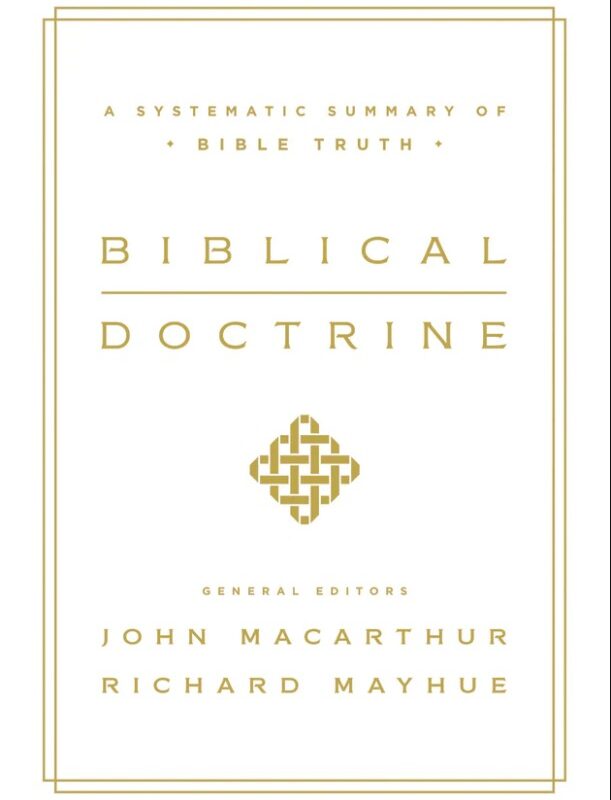Biblical Doctrine – A Systematic Summary of Bible Truth By John MacArthur & Richard Mayhue
Biblical Doctrine – A Systematic Summary of Bible Truth By John MacArthur & Richard Mayhue
Synopsis:
Doctrine isn’t just for theologians–it’s important for every Christian because it shows us who God is and how we should live. Systematizing the robust theology that has undergirded John MacArthur’s well-known preaching ministry for decades, this overview of basic Christian doctrine covers topics such as God the Father, Jesus Christ, the Holy Spirit, the Bible, salvation, and more. Comprehensive in scope yet written to be accessible to the average reader–with non-technical vocabulary, minimal footnotes, and a helpful bibliography–this volume offers Christians a solid foundation for what they believe and why. (Taken from GoodReads page)
Review
A systematic theology book by John MacArthur and Richard Mayhue is going to be a conservative approach study. Even if you don’t agree with the dispensational eschatological perspective, the book is going to be orthodox and well-written.
There are no surprises here with maybe the exception that it appears that MacArthur’s close relationship with Sproul and Ligonier Ministries may have rubbed off a bit more on his Soteriology (which I’m not going to complain about) but I wonder how much disagreement Mayhue had with MacArthur. MacArthur’s name is going to be the one that most people will attribute the book to but there’s more than enough Mayhue in here as well.
The Systematic
The layout of the book is sectioned into 10 different parts with the main focuses being on God, Man, Salvation, Spiritual entities, The Church, and the end. Each subsection is well-cited and covered. While this single-volume set isn’t going to be able to cover all the areas or respond to all objections, the book is large enough to do some of that work.
Can’t Have Everything
The one area that I thought was most lacking was the section on angels, demons, and spiritual entities. It was the briefest section and it seemed like the authors didn’t want to go too far into speculation or possibilities. There weren’t whole sections I would disagree with. Places here are there focus on one aspect without considering others. For example, in the discussion about natural theology, nature was described as not being enough because of the fallen nature of nature where the implication is that nature is fallen ontologically. While I don’t believe the authors would agree with this if asked out of the blue, the context made the authors focus on the need for special revelation. But those areas of lack or fault are few and far between.
Systematic Application
What this systematic theology also does is give suggestions for further reading and also makes it easy for application, and I was able to take advantage of this with my pastor as a discussion meeting once a month per chapter. It was helpful to try and work on using the theology covered and in the structure of the book and turn it into personal application of my own sanctification process or applying the truth of God’s Word to my life. There isn’t a section called “Application” here so the onus is on the reader for this. But the “what do I do with this” is an easy enough question to ask per subsection.
For a single-volume systematic theology, I would recommend this and found it very thorough in its citation of Scripture and does a good job of balancing the topics.
Final Grade
A-

Get The Book (And Support The Show)
Cave To The Cross GoodReads Page
 To check out more reviews and see what Patrick’s reading go to his GoodReads page here.
To check out more reviews and see what Patrick’s reading go to his GoodReads page here.
Other book reviews can be found here.









